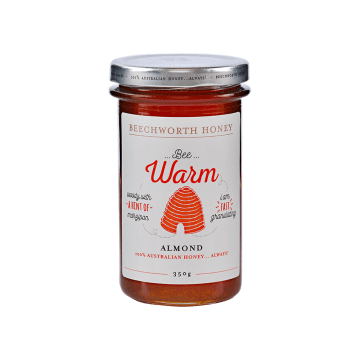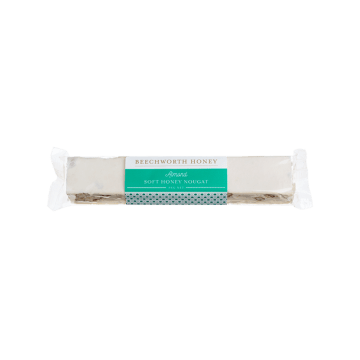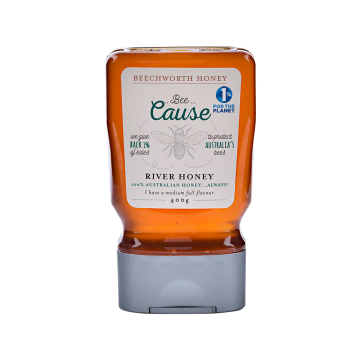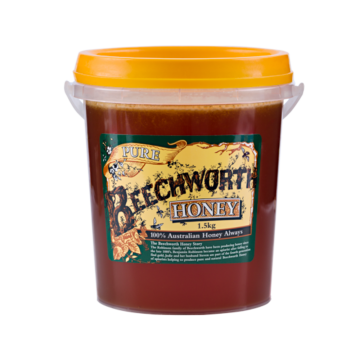The Impact of Climate Change, Drought & Agriculture for Bees
The sweet smoky smell of 'beekeeper' has made its way back into our house, heralding the start of the beekeeping year in our family.
It tends to disappear during the Winter as we spend less time with the bees. Sounds weird but beekeepers have a unique ‘smell’ – it’s a combination of the sweetness of honey and beehives combined with the smoke from the smouldering pine needles in the smoker used to keep the bees placid. As a fourth-generation beekeeper for me, these combined smells are one of the most natural and comforting aromas that I know and they make up part of the sensory experience of living in a beekeeping family.
August is the start of the beekeeping year for us, different ‘years’ start at different times. There’s the calendar year, the financial year, and then the beekeeping year – not that you’re likely to find a beekeeping calendar anywhere that I know of! Winter in the Riverland gives way to sunnier warmer days and this kicks the almond trees into gear which sees the pearly white almond blossoms begin to open. Almonds attract most of the available beehives from around the country. Beekeepers make their respective journeys into the almond groves where the bees relish the nutritious pollen of the almond flowers. I love August because the beekeepers usually start the year on a positive note. There’s a great sense of camaraderie as they catch up over a couple of weeks when they bring their bees into the Riverland.
“Almonds are 100% dependent on bees for pollination, so without honey bees in the orchard there would be no almonds.”
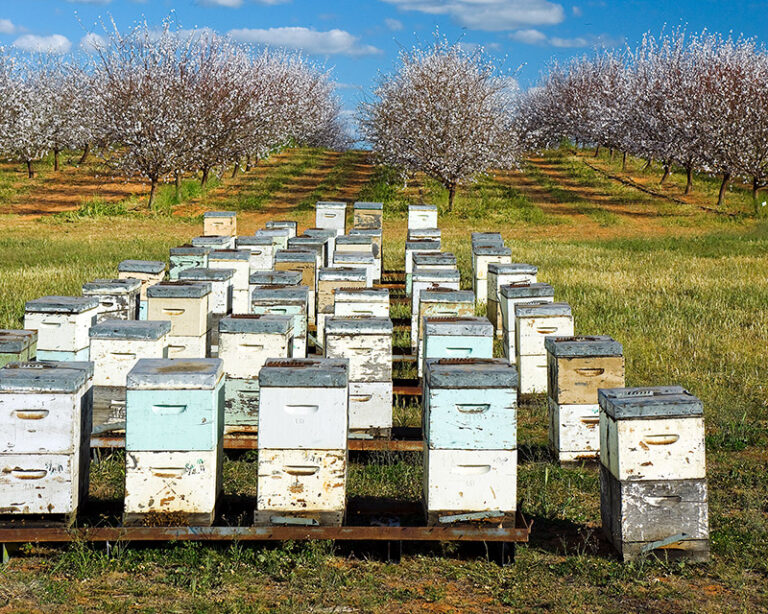
Our hives in the almond orchards of the Riverlands
At Beechworth Honey, we take most of our hives into the almonds as it gives them a fabulous start to the season providing perfect conditions for breeding which makes for strong healthy hives for the rest of the honey-producing season. If the bees weren’t in almonds they would still be shivering and trying to stay warm around Beechworth. The winter does not offer any opportunities for pollen or nectar at this time of the year and the hive exists on stores of honey left on the hive at the end of Autumn.
We’re always amazed as we travel through the Riverland on the border between NSW and Victoria by all the additional plantings of almonds. These plantings require more and more hives of bees for pollination and I can’t help but worry sometimes as to where all the bees will come from in the future as we see more horticultural developments designed to feed our growing population.
I’m a member of the Australian Government’s Horticulture Innovation Expert Advisory Panel. I’m the honeybee industry representative and for the last 18 months, it’s been both rewarding and challenging to review options and strategies with farmers, growers, and research providers that will see honeybees assist with our future food supply.
I have to admit that the impacts of climate change, drought, and intensified agricultural landscapes have me concerned.
“What will the impact be on honeybees?”
The dry ahead is always a worry for us beekeepers. Droughts affect bee flora as well as traditional farms. We don’t have unlimited floral resources on which to keep honeybees, yet we know most of the food crops we produce need more honeybees for pollination. While we need more beehives to pollinate our food we can’t exponentially build hive numbers – we need to have environments to keep honeybees where they can access quality pollen, nectar and fresh water.
I’m always ready and keen to plant in the minds of horticulturalists, farmers and policy makers the future issues we need to tackle now. If we have more than just beekeepers who are thinking about how we best sustain our healthy bees for the future then it can only be a positive outcome. Decision makers are also thinking how to balance productivity and production with environmental and social considerations. In the meantime thank a honeybee when you enjoy your next almond!
Jodie


